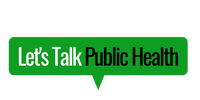The Let's Talk Public Health Experiential Learning Program (ELP) is a time of exploration and growth. The ELP provides public health students with an opportunity to expand their public health communication and marketing knowledge, skills, and experience in a supportive, collaborative, and creative environment.
The ELP is not your average experiential learning program. You can choose one of two ways to participate:
The ELP is not your average experiential learning program. You can choose one of two ways to participate:
- Fellowship - An ELP fellowship is designed like an independent study. Participants build a fellowship experience based on their individual interests and needs, select their start and end dates, determine their deliverables and deadlines, and set their participation schedule. In turn, Let's Talk Public Health provides guidance, support, technical assistance and training, accountability, and potential dissemination channels for each fellow's work.
- Internship - An ELP internship is designed more like a traditional professional learning experience. Participants apply for a specific internship position that aligns with their individual interests and needs. In turn, Let's Talk Public Health provides meaningful and practical professional experience along with guidance and support, and potential dissemination channels for each intern's work.
Not your average experiential learning program.
Customization | Creativity | Camaraderie
Eligibility for the ELP
The ELP is for undergraduate and graduate students (18 years or older) studying public health at universities and colleges in the United States. Students must be interested in building public health communication and marketing knowledge and skills, including:
- Producing public health content for social media
- Writing and publishing public health blogs
- Creating and publishing public health resources
- Creative writing and storytelling for public health
- Building a public health brand
- Being a public health influencer or content creator
- Starting and operating a public health organization or business
Participants also need to be:
- Highly motivated to learn and explore
- Proactive and action-oriented, to recognize and maximize opportunities for growth and development
- Independent and self-driven, to complete and accomplish goals and tasks with minimal supervision
- Assertive, to ask for help or guidance when needed
- Proficient in and equipped for virtual (remote) work
Applying to the ELP
Applying to participate in the ELP involves the following steps:
Program Availability
- Complete the interest form.
- Receive and complete the application.
- Schedule and participate in an interview. (Please note: Participating in an interview does not guarantee acceptance into the program.)
- If accepted, review and respond to the acceptance email by the date requested.
Program Availability
- Fellowships are currently available for the Spring and Summer 2024 semesters.
- The following internship positions are currently available for the Spring and Summer 2024 semesters:
Participating in the ELP
Participation in the ELP is completely virtual, though there may be hybrid opportunities for participants located in the Washington, DC area.
During the first week of the ELP, participants focus on getting set up in the virtual workspace and drafting and finalizing a Participation Plan. The participation plan is a living document meant to guide each participant's time in the ELP and track the progress of their goals, desired outcomes, tasks, and deliverables.
Throughout the ELP, participants have access to:
Nearing the end of their fellowship or internship, participants are required to summarize their experiences and what they learned in a Final Report to be published on the Let's Talk Public Health blog.
Compensation
At this time, ELP fellowships are not compensated. A stipend may be offered for completion of an ELP internship (the internship position description will include compensation details).
Academic Credit
Both fellows and interns are able to earn academic credit for their participation, if desired. (Please note: Let's Talk Public Health does not arrange academic credit for participants. If a participant's academic institution hosts an academic credit program, we will work with them and their program to try and accommodate the request.)
During the first week of the ELP, participants focus on getting set up in the virtual workspace and drafting and finalizing a Participation Plan. The participation plan is a living document meant to guide each participant's time in the ELP and track the progress of their goals, desired outcomes, tasks, and deliverables.
Throughout the ELP, participants have access to:
- Standing Office Hours - to guarantee time slots for scheduling meetings, as needed
- Individual Check-ins - to regularly touch base and monitor progress
- Meetups - to connect with other participants
- Meet and Greets - to connect with professionals in the field
Nearing the end of their fellowship or internship, participants are required to summarize their experiences and what they learned in a Final Report to be published on the Let's Talk Public Health blog.
Compensation
At this time, ELP fellowships are not compensated. A stipend may be offered for completion of an ELP internship (the internship position description will include compensation details).
Academic Credit
Both fellows and interns are able to earn academic credit for their participation, if desired. (Please note: Let's Talk Public Health does not arrange academic credit for participants. If a participant's academic institution hosts an academic credit program, we will work with them and their program to try and accommodate the request.)
What's New with the ELP?
Find out about the latest internships positions in the Let's Talk Public Health Experiential Learning Program and hear from past participants.
ELP Alumni
2023
- Felicia Avevor, UAlbany School of Public Health
- Najib Abbi, University of Washington Bothell School of Nursing & Health Studies
2024
- TBA
|
Highlights
Explore
Connect
|
© 2024 Let's Talk Public Health, LLC. All rights reserved. | View our Privacy policy | Terms of service | Disclaimer | Editorial policy.
